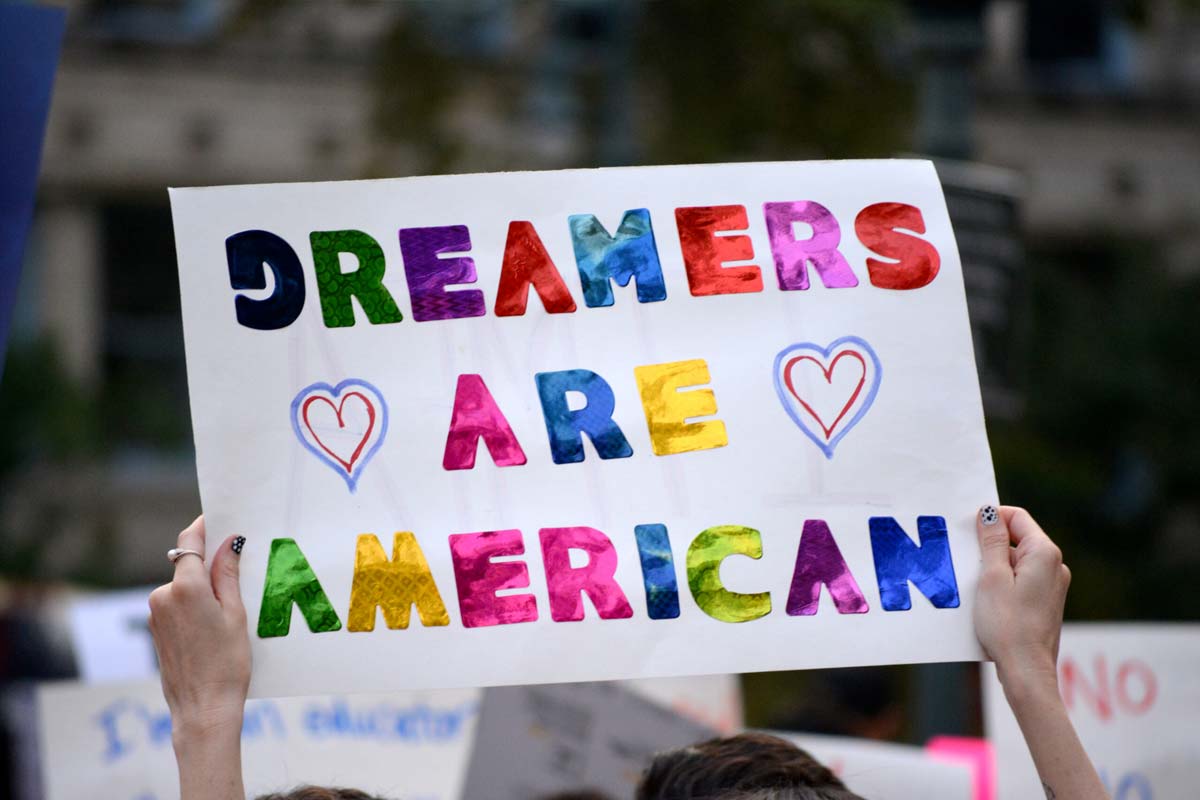The Biden Administration has committed to finding a path to citizenship for individuals with protections under the Deferred Action for Childhood Arrivals (DACA) and has included such a provision in its comprehensive immigration reform bills. However, federal immigration law currently contains no mechanism these individuals to obtain lawful immigration status simply as a result of their DACA enrollment. Nonetheless, there may be some other paths in existing immigration law that DACA recipients can take advantage of until a special pathway becomes available.
Family-Based Adjustment of Status
First, DACA recipients may be eligible to adjust their status to that of a legal permanent resident (LPR) through a family member who is a U.S. citizen or LPR. To exercise this option, you must have an approved I-130, an immigrant visa must be immediately available, and you cannot be inadmissible.
In some cases, however, DACA recipients will not be eligible for adjustment of status and will have to return to their native countries for consular processing, which may or may not be a viable option. Leaving the U.S. could trigger different inadmissibility grounds, which could leave a DACA recipient stuck in his or her native country. These individuals would have to get provisional approval of their unlawful presence waiver before leaving the U.S. to attend a consulate or embassy immigrant visa interview. Additional bars to adjustment of status also may be present, which can make some DACA recipients ineligible to adjust status in this way.
Adjustment of Status After Marriage to a U.S. Citizen
One of the most common ways that DACA recipients adjust their status based on a family member is through marriage to a U.S. citizen. However, even that mechanism does not automatically result in a green card. For instance, one major bar to adjustment of status is entry without inspection into the U.S. The parents of many DACA recipients may have very well brought them to the U.S. without inspection as children.
In other cases, the DACA recipient may have overstayed a visa, which means that they lawfully entered the U.S. Even if their visas are long expired, they technically still had a legal status when they entered the U.S. As a result, these DACA recipients may be eligible for adjustment of status.
Employment-Based Adjustment of Status
Employment-based visa petitions also may be an option for a few DACA recipients. If a DACA recipient has been present in the U.S. without lawful immigration status or worked without authorization for less than 180 days, he or she may qualify for employment-based adjustment of status.
Diversity Visa Lottery
If DACA recipients are otherwise eligible to adjust status, they might be eligible to enter the Diversity Visa Lottery, depending on which country they are from or where their parents were born. Qualified DACA recipients also must have a high school diploma, a GED, or at least two years of work in an occupation that requires two years of training or experience.
Other Forms of Relief
Other humanitarian-based forms of relief may be eligible for some DACA recipients. For example, the Violence Against Women Act (VAWA) allows individuals who have experienced battery or extreme cruelty by a U.S. citizen or LPR to self-petition for adjustment of status. VAWA relief also may extend to the children of these individuals who are under the age of 21. However, recipients of this type of relief must be otherwise admissible, unless they meet a specific exception under VAWA.
A nonimmigrant U visa is another potential route for DACA recipients to seek adjustment of status. These visas are available for victims of serious crimes and their close family members who assist in the prosecution of the crime. Likewise, nonimmigrant T visa may be available for victims of human trafficking, whether it is labor trafficking or sex trafficking. Once a DACA recipient has had a T or U visa for three years, they can apply for adjustment of status to an LPR.
Some DACA recipients also may qualify for asylum, if they fled persecution in their native countries or have a well-founded fear of persecution if they return to their native countries. Aslyum grantees can adjust status to LPRs after only one year of asylee status. However, DACA recipients cannot apply for asylum unless they do so within one year of entering the U.S., absent changed or extraordinary circumstances that prevented them from seeking asylum at an earlier date.
Finally, the Legal Immigration Family Equity (LIFE) Act and the LIFE Act Amendments of 2000 allow some individuals who would not normally qualify for adjustment of status to get a green card. This form of relief may be available regardless as to how they entered the U.S., whether they worked in the U.S. at any point without authorization, or failing to continuously maintain lawful status since entering the U.S. Individuals may qualify if they are the beneficiaries of labor certification applications or immigrant visa petitions.
Someone whose last entry was without inspection may nonetheless be eligible to adjust under INA 245(i) upon paying a $1,000 penalty if an immigrant visa is immediately available, the person is admissible, and he/she is the beneficiary (or derivative beneficiary) of an approvable when filed petition filed on or before April 30, 2001.
If Form I-130, I-140, I-360, I-526, or labor certification application was filed between Jan. 15, 1998 and April 30, 2001, there is an additional requirement that the principal beneficiary was physically present in the United States on Dec. 21, 2000.
Contact LBE Law Firm Today
LBE Law Firm provides individualized representation for individuals concerning all types of immigration matters, including issues related to DACA. Our office also handles general legal matters, including wills and estates, bankruptcy, family law, and contracts. You can reach us at 1-424-LBE-LAW4 (1-424-523-5294) (call, text, or WhatsApp) or via email at info@lbelawfirm.com. Contact us today to learn how we can help you with your legal matter.


